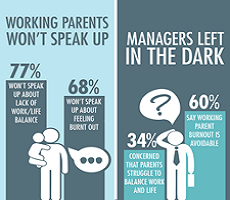October 25, 2015
Vacant property management survey seeks FMs main concerns 0
 When squatting in a residential building became a criminal offence three years ago an Orbis survey revealed that a third of property managers predicted a rise in squatters targeting commercial properties as a result. Orbis has now launched a new vacant property management survey for 2015 with the BIFM to obtain views from property and facilities managers about the empty buildings in their portfolio. It seeks to understand what facilities managers’ main concerns are when it comes to empty buildings, their understanding of the legal and insurance requirements around empty properties and how they currently manage them. The survey also considers urban exploring, the exploration of man-made structures, to determine whether this is a growing trend and a threat. Guy Other, chief executive officer of Orbis said: “With this new survey we will better determine the extent of the problem in 2015, and the extent of any new threats.” Click here to take part
When squatting in a residential building became a criminal offence three years ago an Orbis survey revealed that a third of property managers predicted a rise in squatters targeting commercial properties as a result. Orbis has now launched a new vacant property management survey for 2015 with the BIFM to obtain views from property and facilities managers about the empty buildings in their portfolio. It seeks to understand what facilities managers’ main concerns are when it comes to empty buildings, their understanding of the legal and insurance requirements around empty properties and how they currently manage them. The survey also considers urban exploring, the exploration of man-made structures, to determine whether this is a growing trend and a threat. Guy Other, chief executive officer of Orbis said: “With this new survey we will better determine the extent of the problem in 2015, and the extent of any new threats.” Click here to take part




































October 21, 2015
Far fewer working women than men receive an annual bonus 0
by Sara Bean • Comment, News, Workplace
Nearly three quarters of the UK’s working women don’t receive any form of annual bonus. Glassdoor’s latest UK Employment Confidence Survey found that only 29 percent of women at work receive a bonus, compared to 44 percent of men, which presumably is one reason why 44 percent of men remain positive about the outlook for their employer as opposed to just one in three women. The survey, which is carried out twice a year, also found that over the last six months, nearly half of all businesses in the UK that had made negative changes in the workplace (49 percent) had made employees redundant/and or communicated plans to implement further redundancies. The result is that nearly a third of employees (32 percent) are concerned that they will be made redundant over the next six months, up from 21 percent from the beginning of last year.
(more…)